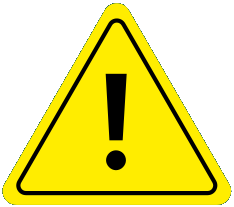I’m Dr. Hala Madi, and I’m excited about joining the team at Astera Health to offer Women’s Health services. Since moving to the area, I’ve wasted no time getting to know the women of this region. It makes me very happy to share my knowledge with all of you. During this special Astera Insights blog, I’d like to share some insider knowledge on the importance of tracking your cycle.
Why do women track their cycles?
Women track their cycles for a variety of reasons. Keeping this information can help to understand their body, be aware of major irregularities, and mensuration purposes. This valuable data can also help promote or prevent pregnancy. Needless to say, I’m a strong advocate for tracking this information. Tracking can be made easy with a bit of help.
How do you track your cycle?
A woman’s menstrual cycle is an essential element of her health. Menstrual cycles can be monitored using digital calendars or paper diaries. Keeping an eye on symptoms and making detailed notes is also a good idea.
Technology for tracking your cycle and reproductive health
Menstrual cycles can also be tracked through menstrual apps that are usually easily accessible and can be used to monitor multiple aspects of women’s cycles and any associated symptoms.
Apps can track menstrual regularity, flow, cycle length, and associated symptoms like elevated body temperature. Some menstrual tracking apps even support journaling other aspects of well-being, such as mood, headaches, sleep disturbances, and changes in sexual activity. Women often note these factors sometimes align with their menstrual cycle. I highly recommend exploring the world of tracking apps. Try to find one that suits you.
These apps can prove to be very useful for women trying to get pregnant. Women also find these apps helpful in predicting and tracking their fertility window. Additionally, these apps are great for encouraging healthy behaviors. They can be set up with reminders for taking medications, drinking water, and exercising.
Apps
I don’t endorse any specific app. However, according to a 2023 study published by the National Center of Biotechnology Information, they scored 34 apps based on healthcare provider and consumer scores, and the top five apps were:
- Bom Calendar (iOS)
- Pregnancy App and Baby Tracker (Android)
- My calendar—ovulation & pregnancy calendar (Android)
- Flo (Android)
- Flo (iOS).
It’s important to note that these studies have multiple limitations.
A helpful guide
As a healthcare provider, I value helping and supporting patients. Menstrual apps are becoming increasingly popular and can improve well-being by encouraging patients to check for signs and symptoms of health issues. This can improve communication between healthcare providers and patients as these apps will show more specifics about their cycles rather than patients trying to remember all that happens during the month.
Limitations of digitally tracking your cycle

Yes, menstrual apps have many limitations. For one, you still have to remember to use it! Menstrual tracking apps also vary in how they present their predictions, which can be inaccurate or include errors in their estimates.
Also, app predictions don’t sufficiently account for life experiences that can impact a woman’s menstrual cycle, like stress, exercise or diet changes, or the use of some emergency contraceptives. On the other hand, many women have varying cycles and find current modeling data insufficient for predicting their menstrual cycle.
Even while using apps, it’s still essential to visit with a provider to discuss the data logged and whether the app is appropriate for the patient, depending on their history, symptoms, and goals.
Thank you for taking the time to learn more about this topic. Please explore our social media platforms for more valuable wellness and reproductive health information. To schedule an appointment or consultation, please call 218-631-3510.

